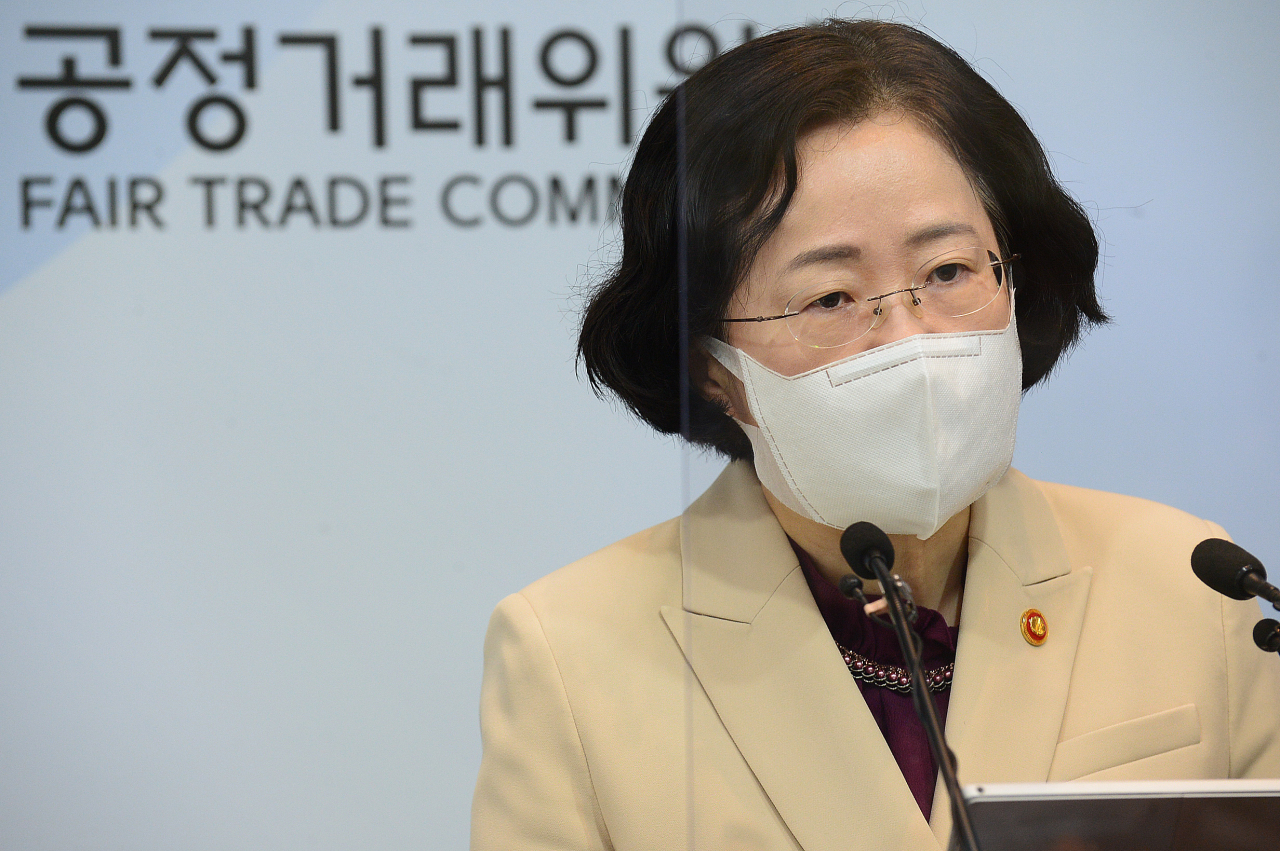When Kim Ji-young -- a pseudonym -- purchased a designer bag for 1.96 million won ($1,737) via an online community in 2019, she was told that delivery would take about four weeks as the bag was coming from another country. The bag, however, never arrived and the seller was nowhere to be found.
Kim’s case is among the 69,452 cases of online shopping consumer damage reported to the Korea Consumer Agency in the past five years.
While the e-commerce retail industry is growing by leaps and bounds, the country has been lacking a proper law to legally address these damage cases, as the existing transaction law was established decades ago, in 2002, when the internet was just beginning to bloom.
To update the law in order to encompass new forms of transactions made online, and to impose greater legal responsibilities to e-commerce platforms and online retailers, the Fair Trade Commission said Sunday that it is revising the Act on the Consumer Protection in Electronic Commerce.
“E-commerce platforms have been leading the growth of the online retail industry by enabling the active trade of information and goods, as well as the innovation in digital economy,” FTC Chairperson Joh Sung-wook said in a pre-announcement of the legislation on Friday.
The watchdog chief pointed out that these platforms, despite their expanding roles and market influence, have been dodging their responsibility to protect customers, under the pretext that they are not the direct sellers of the transactions.
“Once it passes the parliament, this bill will efficiently address consumer damages and also create a market environment in which online platforms will have to compete for customers’ choice,” Joh said.
The bill has been drafted through 21 meetings with consumer organizations, e-commerce platform operators and online retailers, the FTC said.
The bill will be submitted to the National Assembly after the watchdog gathers feedback and information from related government bodies and market players until April 14.
The online retail industry has been growing at a notable pace over the past decade, with the total transaction volume growing by more than six-fold to 161.1 trillion won in 2020 from 25.2 trillion won in 2010.
But, only 58.6 percent of the 69,452 complaints of consumer damage in online purchases reported have been redressed, according to the KCA.
Accounting for 63.6 percent of the complaints were the breach of contract and cancellation charges, followed by product quality dissatisfaction and warranty service.
In the proposed revision bill by the trade watchdog, e-commerce platforms will take joint responsibility with the sellers in consumer’s damages.
Data showed that about 15.8 percent of the 69,452 complaints reported were made against the nine major e-commerce platforms in Korea -- 11st, Naver, Auction, WeMakePrice, Interpark, Gmarket, Coupang, Kakao and Tmon.
The revision bill, according to the FTC, would stipulate the role of e-commerce platforms in a given transaction, and allow customers to separately claim compensation from the seller and the platform.
To meet the newly imposed responsibilities, e-commerce operators will have to establish a mediating system between seller and buyer, and provide identification of both parties when needed. They will also be obligated to inform consumers whether the products shown on the shopping platforms are advertisements or not.
As for the damage cases that occur in purchases from overseas retailers, the FTC said it would introduce new rules, such as obligating overseas retailers to designate a local agent to take charge of conflict management here.
By Jo He-rim (
herim@heraldcorp.com)







![[KH Explains] For Korean automakers, Chinese EVs may loom larger than Trump’s tariffs](http://res.heraldm.com/phpwas/restmb_idxmake.php?idx=644&simg=/content/image/2024/11/14/20241114050537_0.jpg)
![[Graphic News] Tainan predicted top destination for South Koreans in 2025](http://res.heraldm.com/phpwas/restmb_idxmake.php?idx=644&simg=/content/image/2024/11/13/20241113050807_0.gif)